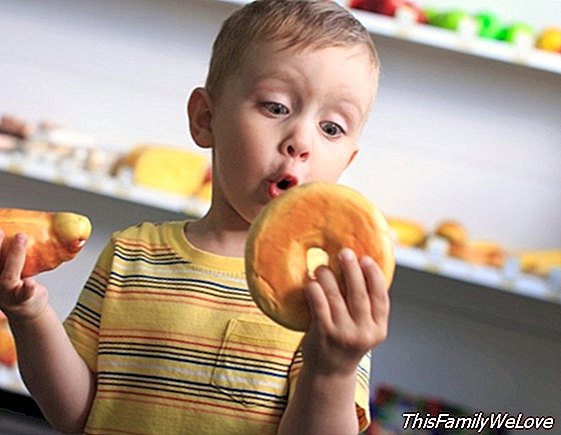Childhood obesity: most doctors blame parents

If our son is fat or obese, is it our fault? Most doctors think so. This has confirmed a recent survey conducted by SERMO, the number 1 social network in the world for physicians, which has made public some of the results obtained in its internal studies, carried out among members of its social network. This report highlights thatl 51 percent of Spanish doctors consider that parents are the main culprits of obesity of their children in childhood.
The result of the survey is worrisome, since the 55 percent of doctors believes that parents are fully responsible of childhood obesity in their children, while a 44 percent consider that they are moderately responsible. None of the doctors surveyed answered that the parents are not responsible in any way, something that denotes the evident concern that doctors have when dealing with this problem.
Obese child: parents' fault?
It is common to go through the door of a school at five in the afternoon and see a child eating a chocolate muffin next to his mother. Well we know that we must be very careful with the feeding of children. And is that the role of dad and mom in the prevention of obesity of their children is essential.
A chubby child is not synonymous with health and fullness of life, but heart disease, vascular, diabetes, metabolic syndrome or cancer. It is better to prevent and be prudent with foods that, despite being delicious, can be harmful to your health.
From SERMO, some pediatricians want to make clear that "parents have to assume some responsibility and blame, as parents, we have to set an example and promote healthy eating and living habits within our families. they are harassed on all sides by other factors, such as access to cheap and high caloric food, ostentatious ads, excessive use of screens and entertainment through videos, as well as school lunches with low nutritional value, among others. "
How to educate children in nutrition to avoid childhood obesity
Various studies ensure that obesity is more a result of diet than exercise, that is, a varied, healthy, nutritious and, above all, balanced diet, during the week is very important for the healthy growth of children. This does not mean that sweets and sweets are forbidden in any child's diet, but these foods should not be eaten regularly. In addition, we must teach our children to self-control, also at meals because the excesses are not good and eating more calories than necessary per day can lead to overweight and obesity.
Although in some cases excess child weight is part of genetics, in most cases the etiology of childhood obesity is environmental. The most important component to avoid childhood obesity is parental control.
Childhood obesity, a serious threat to WHO
According to the World Health Organization, childhood obesity is one of the most serious threats to public health in the 21st century, as it puts children at serious risk of developing diseases such as type 2 diabetes, asthma or heart failure. .
Currently, WHO data ensure that, worldwide, the number of infants and young children (0-5 years old) who are overweight or obese increased from 32 million in 1990 to 42 million in 2013.
In addition, in countries with emerging economies, the prevalence of overweight and obesity in children among pre-school children exceeds 30 percent.
Going forward, if current trends continue, the number of overweight infants and young children will increase to 70 million by 2025. Without intervention, obese infants and young children will remain obese during childhood, adolescence, and age adult In this sense, exclusive breastfeeding from birth to six months of age is important to prevent infants from becoming obese.
Gonzalo Medina




